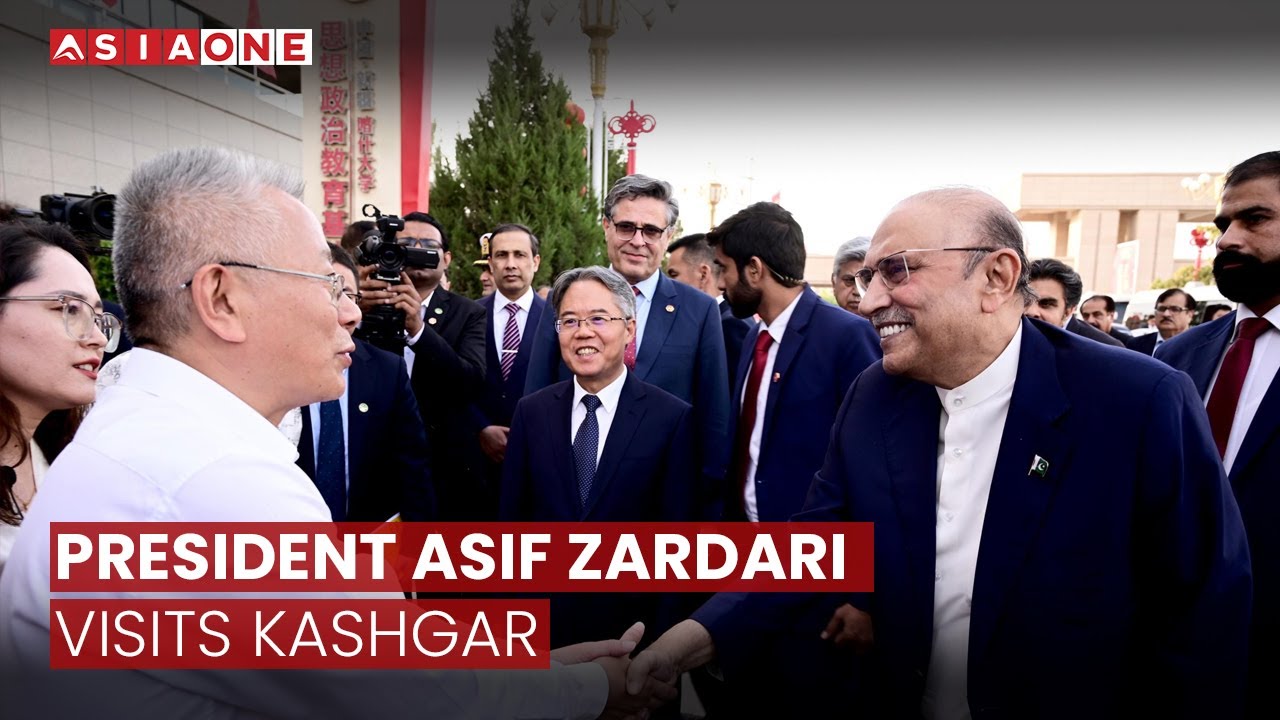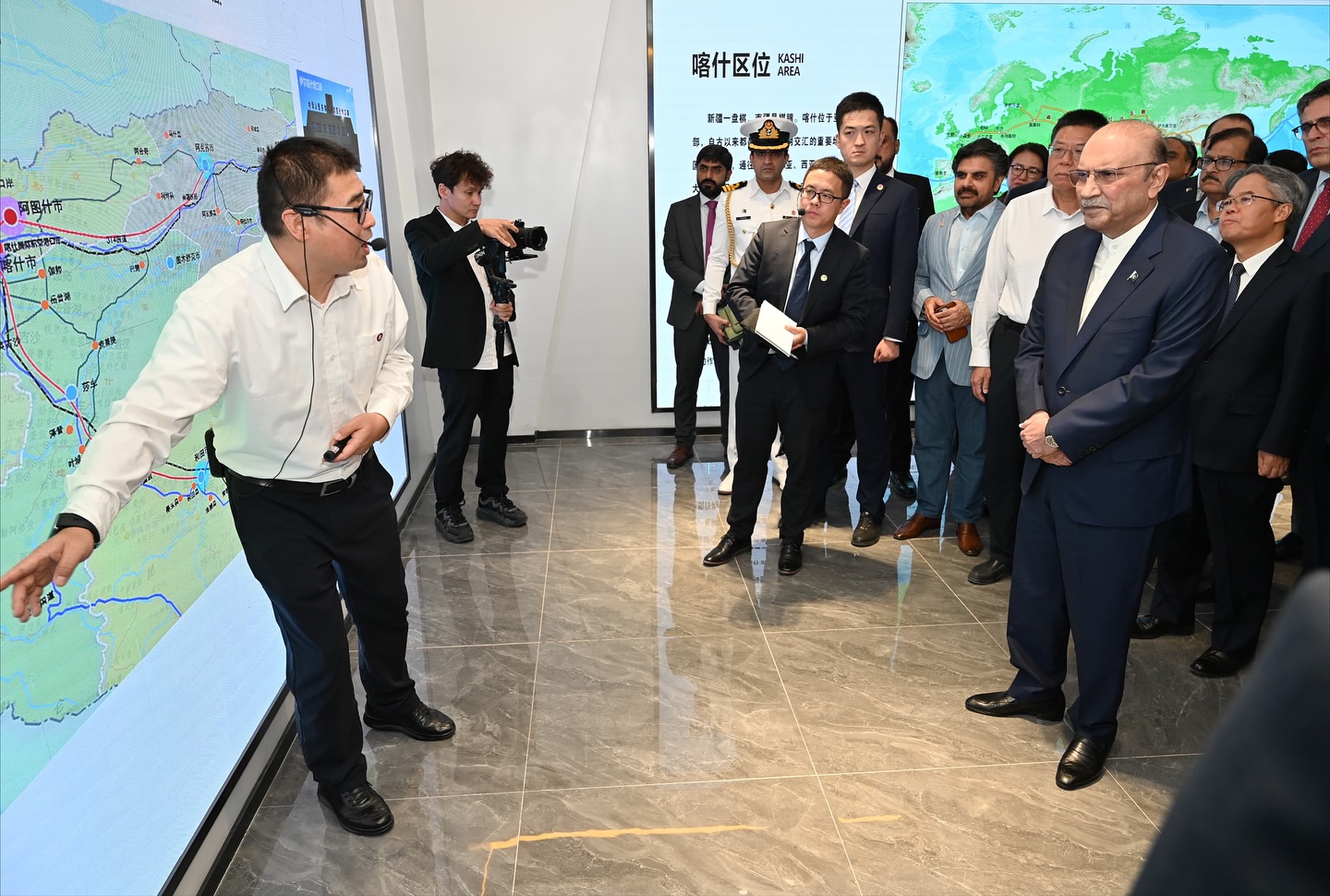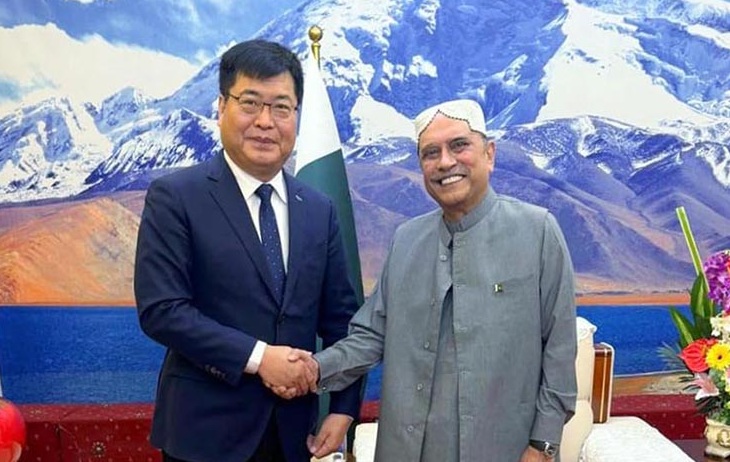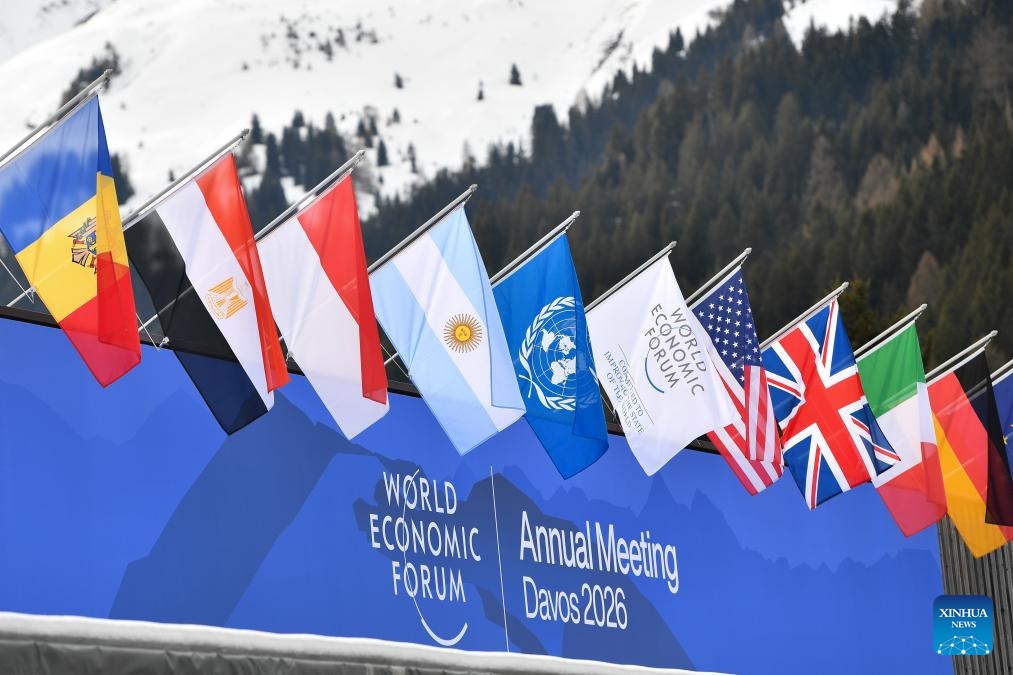President Asif Ali Zardari’s recent meeting with the Chief Executive Officer of Serene Air in Kashgar has attracted significant attention, not only in Pakistan’s aviation industry but also in wider geopolitical circles. More than a ceremonial encounter, this meeting symbolized Pakistan’s commitment to enhancing connectivity with China under the framework of CPEC 2.0. It also highlighted the growing role of private sector investment in strengthening bilateral ties.
At a time when Pakistan’s aviation sector is in need of revitalization, Serene Air’s Chinese-backed expansion and Zardari’s strategic emphasis on connectivity could pave the way for a new era of cooperation. This article explores the background, key outcomes, and broader implications of the meeting.
The Symbolism of Kashgar

Kashgar, located in Xinjiang, holds a unique place in the geography of the China-Pakistan Economic Corridor (CPEC). Historically a Silk Road hub, Kashgar today serves as the starting point of the corridor that links western China with Gwadar Port. Holding this meeting in Kashgar was therefore symbolic: it demonstrated that connectivity is not confined to highways, pipelines, or railways—air corridors are equally crucial.
By choosing Kashgar as the venue, both sides underscored that air travel will now complement the ground infrastructure of CPEC. This shift highlights a more comprehensive understanding of connectivity in the modern era.
President Zardari’s Vision for Aviation
During the meeting, President Zardari emphasized the need for Serene Air to expand its fleet and strengthen its presence in both domestic and international markets. His remarks reflected two key concerns:
-
Domestic Connectivity: Pakistan’s aviation market has long been underserved, with passengers facing limited options, high ticket prices, and frequent service disruptions. Fleet expansion would improve domestic connectivity and provide citizens with more affordable, reliable options.
-
International Linkages: The President’s call for expansion was also aimed at enhancing international flights, especially between Pakistan and China. Direct links between Pakistani cities and major Chinese hubs like Beijing, Urumqi, and Kashgar could transform trade, tourism, and people-to-people exchanges.
Zardari’s vision reflects a holistic approach: aviation is not just a mode of transport but a strategic tool for diplomacy, trade, and cultural cooperation.
Serene Air: A Case of Chinese Investment in Pakistan
Serene Air is notable as the first instance of Chinese private investment in Pakistan’s aviation sector. Backed by international experience in China, the United States, and Europe, the airline has already made its mark by offering domestic flights and recently initiating international routes, including direct flights to Beijing.
For Pakistan, Serene Air brings more than just capital—it brings access to technology, international safety standards, and potential collaboration in aerospace training and maintenance. For China, the investment ensures deeper integration with its Belt and Road partner through sustainable aviation links.
Strategic Discussion Points
The meeting was not limited to commercial aviation. Reports suggest that the Serene Air CEO also discussed technical cooperation with Pakistan’s defense sector, including avionics support for projects such as the JF-17 fighter aircraft.
While surprising at first glance, this development makes sense when viewed through the lens of dual-use aviation technologies. Avionics, training, and maintenance are areas where civilian and defense aviation overlap. Serene Air’s involvement indicates a willingness to explore broader technological cooperation, consistent with the Pakistan-China tradition of defense collaboration.
Aviation Challenges and Opportunities
Despite the optimism, challenges remain for Serene Air and Pakistan’s aviation sector at large.
-
Regulatory Hurdles: Civil Aviation Authority approvals, bilateral agreements, and compliance with international standards are time-consuming processes.
-
Financial Costs: Acquiring new aircraft, maintaining them, and covering rising fuel costs requires significant capital.
-
Operational Capacity: Pilot training, crew management, and establishing maintenance facilities are essential for scaling up.
-
Competition: Existing airlines, both domestic and international, remain strong competitors in the Pakistani market.
Yet, these challenges also bring opportunities. By leveraging Chinese capital and expertise, Serene Air can modernize Pakistan’s aviation industry. It can also provide jobs, training, and new skills for Pakistan’s youth, making aviation a key sector of economic growth.
The Broader Geopolitical Dimension

This meeting must also be understood in the larger geopolitical context. CPEC is entering its second phase, with greater emphasis on industrial cooperation, technology transfer, and human connectivity. Aviation fits naturally into this expanded agenda.
Air corridors will allow Chinese investors to travel easily to Pakistan, Pakistani students to study in China, and tourists on both sides to explore each other’s cultures. In this sense, Serene Air’s expansion is not just about flights—it is about deepening people-to-people bonds that sustain long-term partnerships.
President Zardari, a consistent advocate of Pakistan-China friendship, used this platform to reiterate Islamabad’s commitment to strengthening ties across multiple sectors.
Economic Benefits for Pakistan
If Serene Air expands successfully, Pakistan can expect several economic benefits:
-
Affordable Flights: More competition in aviation often leads to better pricing for passengers.
-
Tourism Boost: Direct links to Chinese cities could increase tourist flows in both directions.
-
Employment: Expansion will create jobs for pilots, cabin crew, engineers, and ground staff.
-
Business Growth: Easier travel will enable traders and investors to explore opportunities across borders.
-
Technology Transfer: Partnerships in avionics and aviation training will enhance local technical capacity.
Public Perception and Policy Considerations
Public opinion on foreign investment in aviation is often divided. Some see it as a threat to national control, while others welcome it as a chance to modernize the industry. The key lies in balancing foreign capital with strong regulatory oversight.
If Serene Air complies with Pakistan’s aviation laws, hires local staff, and contributes to training programs, then its presence can strengthen rather than weaken the national aviation ecosystem. Policymakers must therefore provide clarity, supportive infrastructure, and transparent regulation to maximize the benefits.
Conclusion
President Zardari’s meeting with the Serene Air CEO in Kashgar should be seen as a milestone in Pakistan-China relations. It illustrates how CPEC 2.0 is moving beyond highways and energy projects to embrace air connectivity as a strategic pillar. For Pakistan, this represents an opportunity to modernize aviation, strengthen international partnerships, and provide citizens with more reliable travel options.
The symbolism of Kashgar, the call for fleet expansion, and the discussions on technical cooperation all point toward a new chapter in bilateral engagement. If pursued wisely, this initiative could not only transform Pakistan’s aviation sector but also strengthen its role as a bridge between South Asia, Central Asia, and China.
Dr. Mohammad Arif is a seasoned academic, writer, and analyst specializing in international relations, Pakistan-China cooperation, and strategic affairs. With decades of research and published work on CPEC, regional connectivity, and geopolitical dynamics, he is widely regarded as a credible voice on South Asian and global affairs.



